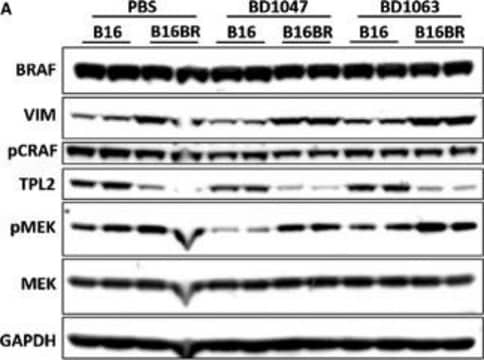SAB4200852
Anti-p53 antibody, Mouse monoclonal
clone BP53-12, purified from hybridoma cell culture
About This Item
immunofluorescence: 0.25-0.5 μg/mL using human A431cells
Productos recomendados
antibody form
purified from hybridoma cell culture
Quality Level
antibody product type
primary antibodies
clone
BP53-12, monoclonal
species reactivity
human
concentration
~1 mg/mL
technique(s)
immunoblotting: 0.06-0.125 μg/mL using human epidermoid carcinoma A431 cell line whole extract
immunofluorescence: 0.25-0.5 μg/mL using human A431cells
isotype
IgG2a
UniProt accession no.
shipped in
dry ice
storage temp.
−20°C
target post-translational modification
unmodified
Gene Information
human ... TP53(7157)
General description
Specificity
Application
Biochem/physiol Actions
Physical form
Storage and Stability
Disclaimer
¿No encuentra el producto adecuado?
Pruebe nuestro Herramienta de selección de productos.
Storage Class
12 - Non Combustible Liquids
wgk_germany
WGK 1
flash_point_f
Not applicable
flash_point_c
Not applicable
Elija entre una de las versiones más recientes:
Certificados de análisis (COA)
¿No ve la versión correcta?
Si necesita una versión concreta, puede buscar un certificado específico por el número de lote.
¿Ya tiene este producto?
Encuentre la documentación para los productos que ha comprado recientemente en la Biblioteca de documentos.
Nuestro equipo de científicos tiene experiencia en todas las áreas de investigación: Ciencias de la vida, Ciencia de los materiales, Síntesis química, Cromatografía, Analítica y muchas otras.
Póngase en contacto con el Servicio técnico








